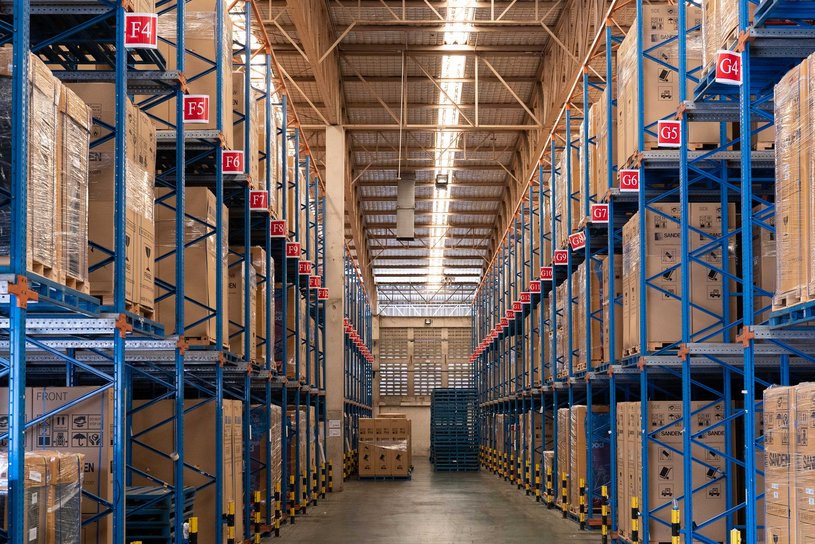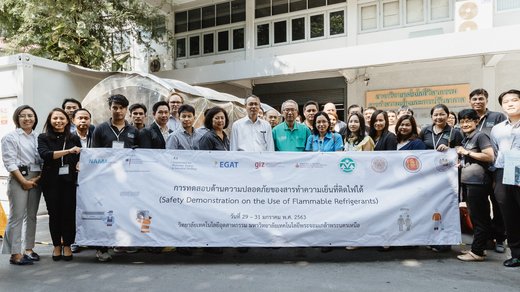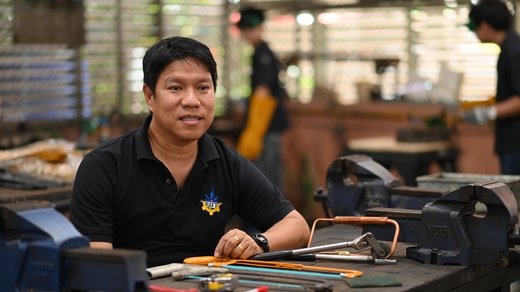More and more companies switch their production lines to natural refrigerants. Producers, consumers, and the environment are all benefitting.
In a country with an average temperature of 30 degrees Celsius, it is not surprising that half of the electricity consumed comes from refrigeration and air conditioning (RAC) systems. Their electricity consumption alone accounts for 20% of the greenhouse gas emissions, while Thailand as a country strives to cope with the impacts of climate change. The country is only recently discovering a greener way of cooling and the enormous potential that lies in natural refrigerants.
For the past 3 years, the RAC NAMA Project (opens in a new window)has been promoting the use of natural refrigerants in domestic and commercial refrigerators, ACs and chillers. Tapping into both the demand and supply sides, the team has been supporting a number of Thai manufacturers with transitioning to natural refrigerants. The Sanden Intercool Group, Supreme CNB Corporation and Panasonic Appliances Cold Chain (Thailand) are now in the process of having their production lines converted.
"The sooner the market in South East Asia switches, the better it will be for preserving the environment and keeping the business within a sustainable level for the long-term.", says Alex Panas, Group Commercial Director of Sanden Intercool (opens in a new window). "In the end, this will benefit all of us. The end-users, the society, the country itself. What the RAC NAMA Project is doing is an outstanding initiative."
With the contribution of the RAC NAMA fund, through a revolving fund and a sub-grant scheme, the company has been able to acquire state-of-the-art equipment necessary for the manufacture of hydrocarbon-based refrigerators and receives marketing and technical support to actively promote green refrigeration in the market. By 2022, Sanden Intercool Group aims to have all its ranges available with natural refrigerants. The company is targeting to supply at least 50%, or even 70%, of the units required in the Thai market with natural refrigerants in the next 2 years.




